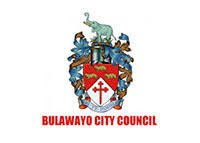
BY TAURAI MANGUDHLA
THE Zimbabwe government will take full control of the country’s largest cotton buyer and processor Cottco effective July, Agriculture minister Anxious Masuka has revealed.
Addressing a Cottco national prize giving ceremony in Chinhoyi last Thursday, Masuka said the initiative had taken off.
The government has a keen interest in cotton production and has heavily subsidised the crop, pumping millions every season amid claims this is a campaign strategy for the ruling Zanu PF party targeted at the rural folk.
Last year, the government subsidised the production of cotton to the tune of more than $3 billion.
Cottco management previously indicated plans were underway to re-list the company on the Zimbabwe Stock Exchange and diversify operations with the introduction of oil processing and garment manufacturing units to the group.
Cottco CEO Pius Manamike said last year that the company was on an expansion drive that will see it transform into one of Africa’s biggest cotton dealers within 10 years.
The vision was to have a textile company that processes products from cotton and another oil company that processes oil from seed.
- Chamisa under fire over US$120K donation
- Mavhunga puts DeMbare into Chibuku quarterfinals
- Pension funds bet on Cabora Bassa oilfields
- Councils defy govt fire tender directive
Keep Reading
“We have already identified advisors for this and it will be done by 1 July,” Masuka told Standardbusiness in a brief interview after the event.
“We had wanted to get it done by the end of March, but we faced some delays.”
Masuka could not be drawn to shed more light into the ongoing transaction, but Standardbusiness has it on good authority that the State wants a 51% stake in Cottco and has engaged a reputable accounting and auditing firm for the transaction.
The government is struggling to privatise its non-performing parastatals.
On the list of State owned enterprises up for privatisation is NetOne, Telone, POSB, Fidelity Printers ad Refiners and Air Zimbabwe.
State-owned enterprises have been feeding troughs for government officials and corrupt individuals close to power in Zimbabwe with billions looted to fund private and ruling party initiatives over the years.
These cases have gone unpunished as the government failed to recover anything from a long list of culprits while taxpayers’ funds continue to subsidise the poorly run institutions.
Meanwhile, Masuka said the government had just paid farmers a balance of $750 million.
He said plans were to pay farmers 25% cash up front on deliveries and the balance will be paid in hard currency this season.
“Like tobacco farmers, cotton farmers are also exporters and are getting paid 75% in US dollars starting this season,” Masuka said, adding the central bank and Finance ministry had worked out the modalities.

This is expected to boost production to hit 383 000 tonnes this year and 500 000 tonnes next season.
Cottco is mulling introducing micro-ginneries as part of its strategic remodeling expected to see the company investing in oil production and fabric weaving technology.
Agriculture economist Mandivamba Rukuni pointed out that Cottco’s current model needed a re-look, including setting up micro-ginneries and toll processing cotton to give farmers more value.
Manamike noted that Rukuni’s views in this regard were in line with Cottco’s strategic thrust.
“As we replace our old ginneries, we are going to devolve and put up right-sized ginneries at strategic rural business centres in line with the government’s devolution thrust and our parent ministry’s rural development mandate,” Manamike said.
He added that efforts to develop processing capacity to produce oil and cloth internally we are still ongoing, with a pilot lint toll processing facility already in place.
“This is still work in progress, but suffice to say that we have started toll processing our lint into yarn with a spinning mill in Norton and we are looking at other entities with idle capacity that we can use while our project to have our own is being implemented,” Manamike said.
It is estimated that there are approximately 250 000 to 300 000 small-scale farmers, who grow between 0,5 and 5 hectares of cotton on average every year.










